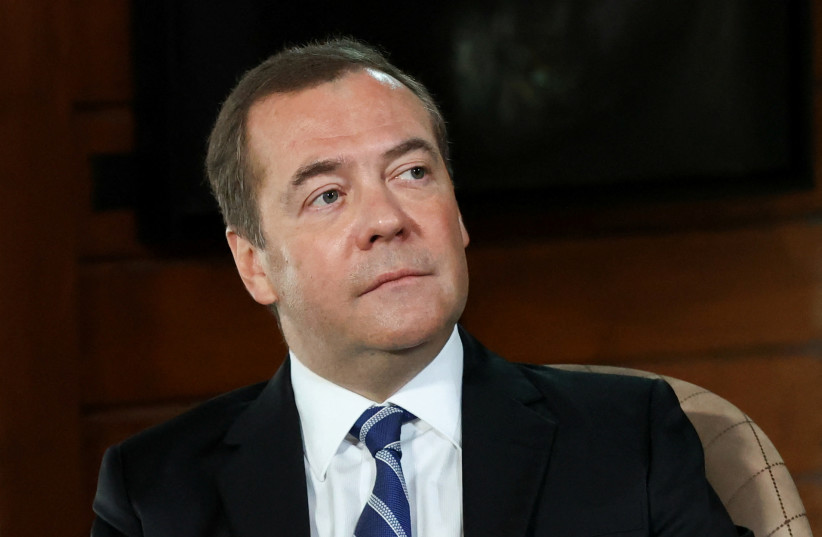Former Russian President Dmitry Medvedev accused Japanese Prime Minister Fumio Kishida on Saturday of shameful subservience to the United States and suggested he should ritually disembowel himself.
It was the latest in a long line of shocking and provocative statements from Medvedev, who was once seen as a Western-leaning reformer but has reinvented himself as an arch-hawk since Russia invaded Ukraine last year.
In Japan, no one was immediately available for comment on the remarks at either the prime minister’s official residence or the foreign ministry outside normal working hours.
Medvedev is a prominent ally of President Vladimir Putin who serves as deputy chairman of Russia's Security Council and of a body overseeing the defense industry.
Russia's threat of nuclear bombs
He was responding to a meeting on Friday between Kishida and US President Joe Biden, after which the two leaders issued a joint statement saying: "We state unequivocally that any use of a nuclear weapon by Russia in Ukraine would be an act of hostility against humanity and unjustifiable in any way."

Medvedev said the statement showed "paranoia" towards Russia and "betrayed the memory of hundreds of thousands of Japanese who were burned in the nuclear fire of Hiroshima and Nagasaki" - a reference to the atomic bombs that the United States dropped on Japan to force its surrender at the end of World War Two.
Rather than demanding US repentance for this, Kishida had shown he was "just a service attendant for the Americans."
He said such shame could only be washed away by committing seppuku - a form of suicide by disembowelment, also known as hara-kiri - at a meeting of the Japanese cabinet after Kishida's return.
Since Russia's invasion of Ukraine, Medvedev has warned repeatedly that Western meddling in the crisis could lead to nuclear war, and has referred to Ukrainians as "cockroaches" in language Kyiv says is openly genocidal.
Putin has said that the risk of a nuclear war is rising but insisted Russia has not "gone mad" and that it sees its own nuclear arsenal as a purely defensive deterrent.
